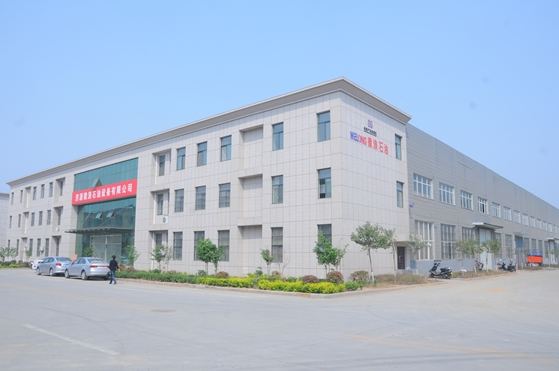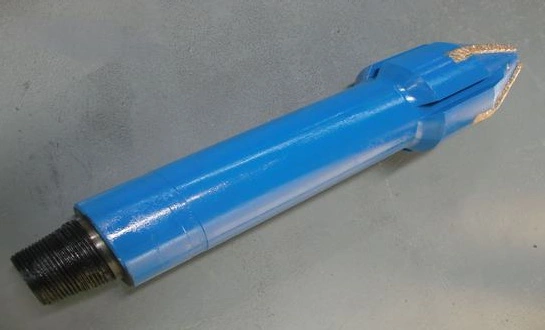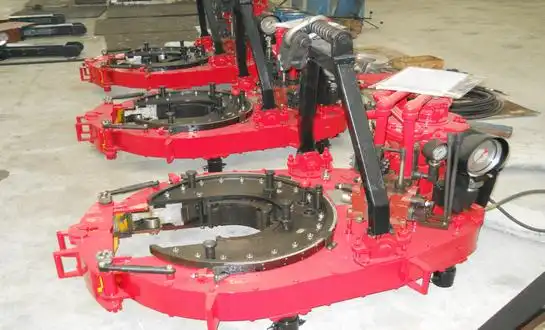What sets steel mill rolls apart in performance?
Enhanced Durability and Longevity
High-performance steel mill rolls are engineered to withstand the harshest operating conditions. Their exceptional durability stems from advanced metallurgical processes and carefully selected materials. For instance, high-speed steel (HSS) rolls exhibit superior wear resistance, allowing them to maintain their surface integrity even under extreme temperatures and pressures. This translates to fewer roll changes, reduced downtime, and increased overall productivity.
Precision and Consistency
Modern steel mill rolls are designed with precision in mind. Manufacturers like WELONG utilize cutting-edge technologies to ensure exact dimensional tolerances and surface finishes. Features such as multi-spiral grooves and advanced cooling systems contribute to maintaining consistent roll surface temperatures, crucial for producing high-quality end products. This level of precision is particularly valuable in applications requiring tight tolerances, such as in the production of high-grade steel sheets or precision-engineered components for the oil and gas industry.
Versatility in Material Composition
The performance of mill rolls is significantly influenced by their material composition. WELONG offers a diverse range of materials tailored to specific applications. For example, urethane conveyor rollers provide excellent resistance to abrasion and chemicals, making them ideal for harsh environments. Polyurethane idler rollers offer exceptional load-bearing capacity and reduced noise levels. Cast steel rolls, on the other hand, are well-suited for hot strip and plate mills due to their thermal stability and resistance to thermal fatigue.
Applications best suited for high-performance roles
Hot Rolling Mills
Hot rolling mills operate under extremely high temperatures, often exceeding 1000°C, where steel is shaped and formed into various products. In this demanding environment, rolls must endure intense thermal and mechanical stresses without compromising performance. High-speed steel (HSS) rolls have become the preferred choice because they combine excellent heat resistance with superior strength. These rolls not only support higher steel throughput but also reduce the frequency of roll grinding, which helps maintain consistent production rates and lowers downtime. Their ability to resist thermal fatigue and wear means that the quality of the rolled steel remains uniform, ensuring that the final products meet strict industrial standards. Ultimately, the durability and resilience of HSS rolls play a critical role in keeping hot rolling operations efficient and reliable.
Cold Rolling and Finishing Lines
Cold rolling involves processing steel at much lower temperatures than hot rolling, which places different demands on the rolls used in this process. Rolls in cold rolling mills must possess exceptional surface hardness to achieve the precise dimensional tolerances and smooth finishes required for high-quality products. Forged steel rolls, often enhanced with specialized surface treatments such as chrome plating or induction hardening, are commonly employed in these applications. These treatments help the rolls maintain their hardness and resist surface damage over extended use. The result is a roll that consistently produces steel strips and sheets with flawless surfaces, making them ideal for applications where appearance and precision are crucial—such as automotive body panels and thin steel used in electronic devices. The ability to maintain stability and resist deformation also means these rolls contribute significantly to the overall quality and reliability of cold-rolled products.

Conveyor Systems in Mining and Heavy Industry
Conveyor systems in mining and other heavy industries face some of the toughest operational conditions, including constant abrasion, heavy loads, and exposure to harsh environments. Traditional conveyor rollers made from metal or hard plastics often suffer from rapid wear, leading to increased maintenance and downtime. In contrast, rolls made from urethane and polyurethane materials provide substantial advantages. These synthetic rolls are highly resistant to wear and abrasion, significantly extending their service life. They also reduce belt wear by offering better grip and cushioning, which helps minimize material carryback and prevents damage to the conveyor belts. Additionally, urethane and polyurethane rollers operate with less noise and vibration, contributing to a safer and more pleasant work environment. By improving efficiency and reducing the need for frequent maintenance, these high-performance conveyor rolls play a vital role in optimizing mining and heavy industry operations.
How WELONG ensures quality and consistency in their mill rolls
Advanced Manufacturing Processes
WELONG employs state-of-the-art manufacturing processes to ensure the highest quality in their mill rolls. This includes precision forging techniques, advanced heat treatment processes, and computer-controlled machining. Each step of the manufacturing process is meticulously controlled to achieve the desired microstructure, hardness profile, and surface finish. For instance, the production of HSS rolls involves careful control of alloying elements and cooling rates to optimize the roll's performance characteristics.
Rigorous Quality Control Measures
Quality assurance is central to the manufacturing philosophy. Every mill roll undergoes a comprehensive series of inspections and tests to ensure it meets the highest standards. Non-destructive testing techniques, such as ultrasonic and magnetic particle inspections, are used to detect any internal or surface defects, ensuring that the rolls are free from flaws that could impact performance. In addition, each roll is subjected to dimensional checks, hardness testing, and microstructural analysis to verify that it meets or exceeds the required specifications. These stringent quality control measures guarantee that only the most reliable and durable products reach customers, reducing the likelihood of failures and enhancing operational efficiency in the long term.
Continuous Innovation and Research
WELONG is dedicated to maintaining its leadership in the industry by investing in ongoing research and development. The company works closely with industry partners and academic institutions to explore new materials, surface treatments, and advanced manufacturing techniques. This collaborative approach allows WELONG to continuously innovate and improve its products. By staying at the forefront of technological advancements, WELONG ensures that its mill rolls continue to meet the evolving needs of industries such as oil and gas, drilling equipment manufacturing, and beyond. This commitment to innovation drives the company to enhance the performance and lifespan of its products, ensuring that they remain competitive in a rapidly changing market.
Source: CHINA WELONG-Oilfield tools Manufacturer
FAQ about Mill Rolls
What factors influence the selection of mill rolls for a specific application?
Selecting the appropriate mill roll depends on several factors, including: - The type of material being processed (e.g., steel, aluminum, copper) - Operating temperatures and pressures - Required surface finish of the end product - Production volume and speed - Environmental conditions (e.g., presence of abrasive particles or corrosive substances) - Desired maintenance intervals and overall cost of ownership
How do high-performance mill rolls contribute to cost savings?
High-performance mill rolls offer several avenues for cost savings: - Extended service life, reducing the frequency of roll changes and associated downtime - Improved product quality, minimizing rejections and rework - Enhanced energy efficiency due to optimized roll designs and materials - Reduced maintenance requirements, lowering labor and spare parts costs - Increased production capacity, allowing for higher throughput with existing equipment
What maintenance practices can extend the life of mill rolls?
To maximize the lifespan of mill rolls, consider the following maintenance practices: - Regular inspection for signs of wear, damage, or misalignment - Proper lubrication according to manufacturer specifications - Timely roll grinding or resurfacing to maintain optimal surface conditions - Adherence to recommended operational parameters (e.g., load, speed, temperature) - Proper storage and handling when rolls are not in use - Implementation of predictive maintenance techniques, such as vibration analysis or thermal imaging
In conclusion, high-performance steel mill rolls are essential components in modern industrial processes, offering significant advantages in terms of durability, precision, and operational efficiency. WELONG's commitment to quality, innovation, and customer satisfaction positions them as a leading provider of these critical components. For industries ranging from oil and gas to drilling equipment manufacturing, investing in superior mill rolls can lead to substantial improvements in productivity and product quality. If you're looking to optimize your production processes or require more information about high-performance mill rolls, don't hesitate to reach out to WELONG's expert team at oiltools15@welongpost.com. Their extensive experience and cutting-edge solutions can help you achieve your manufacturing goals with confidence.





